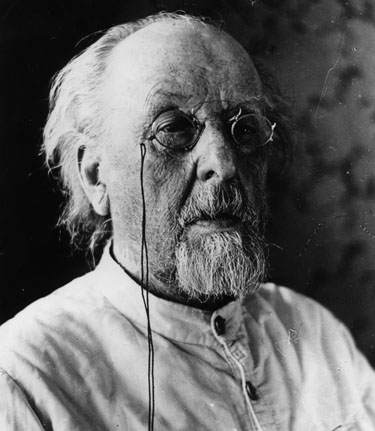
Rosenthal, Bernice Glatzer (editor). The Occult in Russian and Soviet Culture. Cornell University Press, 1997.
This collection of essays traces in chronological fashion, the influence of broadly occult and paranormal beliefs on Russian culture. The main emphasis is on elite culture, most especially literature from the mid nineteenth century onwards, but wider topics are also addressed. In some respects these essays parallel the studies of the influence of western occultism from the mid nineteenth century onwards undertaken by historians such as James Webb, and one can certainly see how much Imperial Russia shared in many of the cultural trends of the period.
A theme of several of the writers is not quite the occult roots of Bolshevism, but certainly the extent to which occult and pseudoscientific ideas were scientified in the early Bolshevik era. Of particular interest are discussions of cosmicism, a sort of science fictional quasi-religion, derived in part from the ideas of Nikolai Fedorov (1828-1903). Central to this movement's manic technisism, reminiscent of H. G. Wells at his most grandiose, was a belief in space exploration, both for the purpose of collecting the dispersed atoms of the dead so they could be scientifically resurrected, and for providing homes for said resurrected. This idea of a central, quasi-totalitarian cosmic task for humankind finds some echoes in the techno-process theology of such Western science writers as Frank Tipler and David Darling.
 Home for many fringe thinkers in both Imperial and early Soviet Russia was the town of Kaluga. Among its residents was the astronautics pioneer Konstantin Tsiolkovsky,[left] who, according to Michael Hegenmeister, writing in this volume, believed in the existence of conscious intelligent beings, more perfect than humans but nearly incorporeal, ethereal and therefor incomprehensible to us ... [who] ... send messages to humans using atmospheric or heavenly symbols, and averred that he himself was twice witness to such events! Tsiolkovsky also appears to have believed that humanity would eventually transmute into a form of immortal radiant energy. When one notes the spiritualistic and occult beliefs of the German rocket pioneer (and incidentally supporter of the Neo-Nazi National Democratic Party) Herman Oberth, who received messages of cosmic wisdom channelled from an entity called Rho Sigma the possibility of a radically revisionist history of the space race opens up. Another person involved in this tradition was the psychical researcher Leonid Vasiliev, while Maxim Gorky had a strong interest in telepathy and considered it as a possible means of propagandising the masses.
Home for many fringe thinkers in both Imperial and early Soviet Russia was the town of Kaluga. Among its residents was the astronautics pioneer Konstantin Tsiolkovsky,[left] who, according to Michael Hegenmeister, writing in this volume, believed in the existence of conscious intelligent beings, more perfect than humans but nearly incorporeal, ethereal and therefor incomprehensible to us ... [who] ... send messages to humans using atmospheric or heavenly symbols, and averred that he himself was twice witness to such events! Tsiolkovsky also appears to have believed that humanity would eventually transmute into a form of immortal radiant energy. When one notes the spiritualistic and occult beliefs of the German rocket pioneer (and incidentally supporter of the Neo-Nazi National Democratic Party) Herman Oberth, who received messages of cosmic wisdom channelled from an entity called Rho Sigma the possibility of a radically revisionist history of the space race opens up. Another person involved in this tradition was the psychical researcher Leonid Vasiliev, while Maxim Gorky had a strong interest in telepathy and considered it as a possible means of propagandising the masses.
Holly Stephens examines the many strands of occult beliefs in Russia today, many of which will eventually come over to the west no doubt, while in her conclusion Dr Rosenthal traces the political implications of occult beliefs in Russia from the turn of the century to today. Some of these have clear radical right overtones, and show similarities to the ideas of the French radical right occultist Jacques Bergier, including admiration for Réné Guerion. Dr Rosenthal concludes that as the year 2000 looms ever closer, the occult threatens to fuse with apocalyptic fears in extremist political ideologies. Politically the occult is dangerous. Fusion paranoia is as alive and well in Russia as in the States. -- Peter Rogerson (Originally published Magonia 61, November 1997)

No comments:
Post a Comment